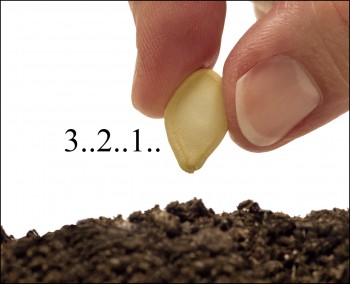
When Earth Reclaims Her Children: The Nyx Capsule and Humanity's Cosmic Hubris
On June 24th, 2024, the cosmos delivered what might be interpreted as a cosmic joke - or perhaps a pointed message from Mother Earth herself. The Nyx capsule, carrying the cremated remains of 166 humans and cannabis plants destined for space research, crashed spectacularly into the Pacific Ocean when its parachutes failed to deploy. Named after the primordial Greek goddess of night who gave birth to death itself, Nyx seemed almost prophetically destined for this watery grave, taking humanity's space-bound dreams down with her into the depths.
This wasn't just any routine space mission gone wrong. This was humanity's latest attempt to transcend the bonds of mortality and planetary attachment through the ultimate act of cosmic rebellion - shooting our dead into the void while simultaneously sending the very plant that helps us contemplate existence and mortality. The symbolism is so rich it borders on the absurd: we're literally trying to escape death by launching it into space, accompanied by a consciousness-expanding plant that makes us question everything, including why we're trying to escape in the first place.
But here's where the story gets cosmically comedic: this is the second time Celestis, the Texas-based memorial spaceflight company, has lost a payload to the universe's apparent sense of humor. In 2023, a rocket containing the cremated remains of former NASA astronaut Philip K. Chapman exploded over New Mexico. It's almost as if Earth is saying, "Nice try, but you're not leaving that easily." The pattern suggests either remarkably bad luck or a universe with a twisted sense of irony about humanity's cosmic ambitions.
The deeper question this raises isn't about rocket engineering or parachute failures - it's about what drives humans to spend millions launching dead bodies into space while living bodies starve on the streets below. What does it say about our species that we'll pay premium prices to scatter ashes in orbit while ignoring the very earthly problems that created those ashes in the first place? Oh humanity, you beautifully absurd creature - reaching for the stars while stepping over the homeless.
Nyx: When Gods of Death Meet Space Age Hubris
The choice to name this doomed capsule "Nyx" reveals either remarkable foresight or cosmic irony that would make ancient Greek playwrights weep with laughter. In Greek mythology, Nyx was the primordial goddess of night, one of the first beings to emerge from Chaos itself. She was so powerful that even Zeus feared her, and she gave birth to fundamental forces including Death (Thanatos), Sleep (Hypnos), and the Fates who determine human destiny.
So naturally, we decided to name our death-carrying spacecraft after the goddess who literally birthed death itself. The symbolism is so on-the-nose it hurts. Here we are, trying to cheat death by launching it into space, and we name our vessel after the cosmic force that made death possible in the first place. It's like naming a submarine "Poseidon" and then acting surprised when it gets claimed by the sea.
The Exploration Company, a German aerospace startup, probably thought they were being clever with classical references. Instead, they may have inadvertently invoked exactly the cosmic forces they were trying to transcend. When you name your death-ship after the mother of death herself, you shouldn't be shocked when the universe decides to collect on that mythological debt.
But the Nyx naming becomes even more perfect when you consider what else was aboard: cannabis plants and seeds from the Martian Grow project, designed to study how the consciousness-expanding plant might adapt to space environments. Nyx, the goddess of night and dreams, carrying both human remains and the plant that helps humans explore the darker corners of consciousness and contemplate mortality. The poetry writes itself.
The mission was dubbed "Mission Possible," which in retrospect seems like the kind of cosmic hubris that Greek tragedies were written to punish. When you're carrying the remains of 166 humans and naming your vessel after death gods while declaring your mission "possible," you're basically daring the universe to prove you wrong. And apparently, the universe was listening.
The crash on June 24th - just one day after launch - suggests that Nyx delivered her cargo exactly where it belonged: back to Earth, specifically to the ocean that covers most of our planet and has served as humanity's final resting place for millennia. Celestis tried to spin this as romantic, noting that the families should "find some peace in knowing their loved ones...are now resting in the vastness of the Pacific, akin to a traditional and honored sea scattering."
But that misses the deeper cosmic joke. We spent millions trying to escape Earth's gravitational embrace, only to end up exactly where countless humans have ended up for thousands of years - at the bottom of the ocean. The technology failed, but maybe the symbolism succeeded. Maybe Nyx, the goddess of night and mother of death, was reminding us that no matter how advanced our rockets become, we're still subject to forces far beyond our engineering capabilities.
The Meaning of Death in the Space Age
The entire concept of space burials reveals something profound about humanity's relationship with mortality in the 21st century. We've conquered most of Earth's frontiers, eliminated many diseases, extended lifespans dramatically, and developed technology that borders on magic. Yet death remains the one frontier we can't quite crack, so we've decided to literally launch it into space as if distance might somehow diminish its power over us.
But what are we really trying to accomplish by shooting cremated remains into orbit? The marketing materials for companies like Celestis and Aura Flights talk about "eternal rest among the stars" and "becoming one with the cosmos," but this is fundamentally misunderstanding both death and space. Your ashes don't become conscious cosmic travelers - they become space debris, subject to the same gravitational forces and eventual decay as everything else in the universe.
The appeal of space burial seems to tap into deeply human desires for transcendence and permanence. If we can't defeat death, maybe we can at least escape Earth's gravity while dead. If we can't live forever, maybe we can at least rest forever among the stars. It's a beautiful sentiment that completely ignores the basic physics of orbital decay and the fact that "space" isn't actually empty void but rather extremely hostile environment that will eventually claim all human artifacts.
More fundamentally, space burial represents the ultimate expression of technological solutionism - the belief that engineering can solve existential problems. Can't find meaning in death? Launch it into space! Struggling with grief? Put your loved one in orbit! Missing someone? Look up at the night sky and imagine them floating around up there! It's emotional comfort through aerospace engineering, which is either touching or ridiculous depending on your perspective.
The cannabis component of the Nyx mission adds another layer to this mortality meditation. Here's a plant that humans have used for thousands of years to contemplate existence, meaning, and death, now being sent to space to see how it might adapt to environments where humans can't naturally survive. We're literally sending consciousness-expansion tools to places where consciousness can't exist without massive technological life support.
But maybe that's exactly the point. Cannabis has always been about transcending ordinary consciousness and exploring altered states of awareness. Space travel represents the ultimate altered state - existing in an environment so hostile to life that every breath requires technological intervention. Sending cannabis to space isn't just agricultural research; it's preparing consciousness-expansion tools for the most consciousness-challenging environment humans have ever encountered.
Earth's Gravitational Jealousy
The pattern of space mission failures involving human remains is starting to feel less like coincidence and more like cosmic intervention. When the same company loses two different payloads containing human remains in two different years, you start wondering if someone or something doesn't want us leaving.
The 2023 explosion over New Mexico that claimed Philip K. Chapman's remains wasn't just any failure - it was the destruction of a former NASA astronaut's ashes by the very forces he spent his career trying to master. Chapman worked on the Apollo program and helped develop spacecraft that successfully carried living humans to the moon and back. Yet when it came time to carry his dead body into space, the technology failed spectacularly.
Now we have Nyx, named after the goddess of death, crashing into the Pacific with 166 human remains aboard. The spacecraft achieved orbit successfully, completed its mission parameters, initiated controlled reentry, and then failed at the very last moment when parachutes didn't deploy. It's like Earth was saying, "Fine, you can visit space, but you're coming home to me."
This could all be coincidence, of course. Space travel is inherently risky, and failures are common enough that aerospace engineers have entire methodologies for dealing with them. But the specific pattern of failures involving human remains does seem cosmically targeted. Satellites launch successfully, space stations operate for decades, rovers explore Mars for years, but when we try to permanently relocate human bodies beyond Earth's gravity, something always seems to go wrong.
Maybe it's Earth's gravitational jealousy. We evolved here, lived here, and traditionally returned to Earth's soil or seas when we died. Now we're trying to break that cycle, and the planet that created us isn't ready to let go. Every failed space burial could be interpreted as Gaia asserting her claim over the creatures she nurtured from primordial soup to space-faring civilization.
Or maybe it's just the universe maintaining cosmic balance. For every action, there's an equal and opposite reaction, and the action of trying to escape death through space burial might generate the opposite reaction of space itself claiming those remains. Physics as poetry, orbital mechanics as metaphor.
The cannabis angle adds another dimension to this cosmic pushback theory. We're not just trying to escape Earth with our dead bodies - we're trying to escape with consciousness-altering plants that might help us psychologically adapt to non-terrestrial environments. Earth might be especially protective of the botanical allies that helped humans develop the consciousness necessary to contemplate space travel in the first place.
The Sticky Bottom Line: Reaching for Stars While Stepping Over Homeless
The Nyx capsule crash embodies everything beautifully absurd about human nature in the 21st century. We've developed the technology to launch dead bodies into orbit, but we can't figure out how to house living bodies on Earth. We'll spend millions sending cannabis seeds to space to study Mars agriculture while people starve on the planet that already grows food abundantly.
This isn't to diminish the genuine grief of families who lost loved ones in the crash, or to mock the legitimate scientific value of studying plant adaptation in space environments. But the broader picture reveals humanity's remarkable talent for solving complex problems we create while ignoring simple problems we could easily fix.
The space burial industry exists because we've made death feel so disconnected from nature that launching it into the void seems preferable to returning it to the earth that created it. We've urbanized and technologized ourselves so thoroughly that even death needs to be high-tech to feel meaningful. Traditional burial or cremation followed by scattering isn't exotic enough for the space age - we need orbital decay and cosmic radiation to make mortality feel transcendent.
Meanwhile, the same societies that fund space burial companies often lack basic social safety nets for their living citizens. We'll pay premium prices to scatter ashes among the stars while homeless populations sleep under those same stars without shelter. The contrast is so stark it borders on cosmic comedy - or tragedy, depending on your perspective.
The cannabis research aboard Nyx represents humanity's eternal optimism about expansion and adaptation. We're already planning to grow consciousness-expanding plants on Mars before we've figured out how to grow food equitably on Earth. It's either inspiring ambition or tragic misplaced priorities, possibly both simultaneously.
But maybe that's exactly what makes us human - the ability to simultaneously reach for transcendence while remaining mired in earthly contradictions. We dream of Mars colonies while creating Earth homeless. We launch death into space while creating life-threatening conditions on our home planet. We study cannabis adaptation to alien environments while criminalizing it in terrestrial ones.
The Nyx crash might be the universe's way of reminding us that before we colonize space, we might want to figure out how to properly inhabit Earth. Before we launch the dead into orbit, maybe we should focus on keeping the living alive and housed and fed. Before we grow space weed, perhaps we should legalize Earth weed.
Or maybe the universe is just having a laugh at our expense, watching us spend millions to achieve through technology what gravity accomplishes for free. Either way, the next time someone names a death-ship after a death goddess, they shouldn't act surprised when death shows up to collect. Nyx kept her appointment right on schedule.







